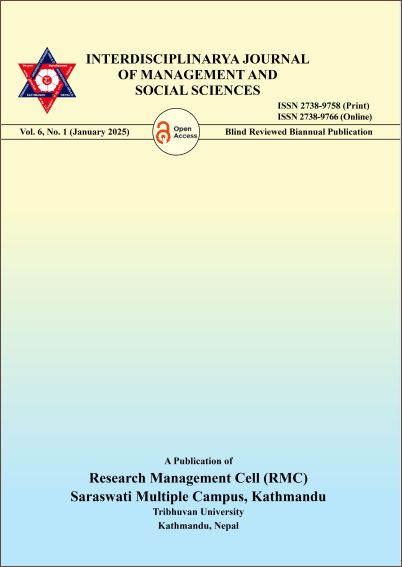Disability and Poverty: Impacts on Families in Nepal
DOI:
https://doi.org/10.3126/ijmss.v6i1.75410Keywords:
caregiving, disabling barriers, disability studies, household poverty, riskAbstract
People with disabilities are rarely seen as relaxed. Barriers, illnesses, shortage, neglect, stigma, stress, marginalization, oppression, exclusion, and similar adversities are very common conditions, which these people do typically encounter. Furthermore, families must also respond to disability – through either adaptation or resistance. Families adapting to disability must strive to maintain equilibrium despite potential challenges and stigma they may encounter, while rejecting the notion of disability denies its existence as a socially constructed disadvantaged reality. In many respects, families in Nepal assume the entire social and financial burden associated with disability, indicating that they have been compelled to adapt to the challenges of disability while enduring significant hardships due to the limited responsibilities assumed by the state. Thus, the role of disability in influencing family dynamics emerges as a crucial area of research, which this paper seeks to elucidate. This paper analyzes the ways in which disability impacts households and the extent to which these households adjust to the presence of disability. Drawing on some qualitative data gathered through comprehensive interviews, this study contends that persons with disabilities have endured a distressing life and their families have gradually become entwined with poverty. Therefore, disability should be viewed as a macro social concern, rather than solely an individual issue, when considering its impact on the family.
Downloads
Downloads
Published
How to Cite
Issue
Section
License

This work is licensed under a Creative Commons Attribution-NonCommercial 4.0 International License.

